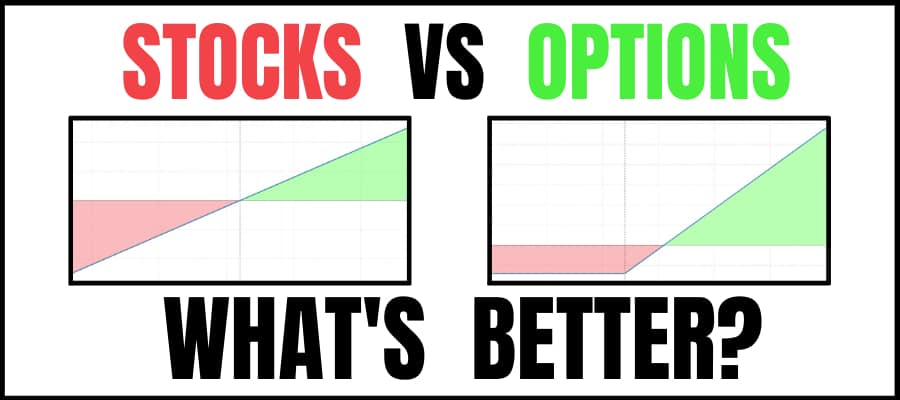
In financial markets, investors have an array of instruments at their disposal to build wealth and manage risk. Among these instruments, options and stocks are the most popular choices. Both options and stocks offer unique opportunities and challenges, attracting diverse investors.
This article sheds light on the distinctions between options and stocks in the UK market, helping investors decide which asset class aligns with their financial goals and risk appetite.
What are options?
Options are financial instruments that provide traders with the decision, without the obligation, to purchase or resell an underlying asset at a predetermined price on or before a specified date. The underlying asset can be stocks, indices, currencies, or commodities.
Options trading can occur on organised exchanges, such as the London International Financial Futures and Options Exchange (LIFFE) or Over-the-Counter (OTC) through brokerage firms or an online trading platform UK. Options offer versatility to investors, enabling them to pursue various strategies to generate income, hedge against market volatility, and speculate on price movements.
Understanding stocks
Stocks are traded on stock exchanges, such as the London Stock Exchange (LSE), and their prices fluctuate based on various factors, including the company’s financial performance, industry trends, and overall market sentiment.
Stocks are classified into different categories, such as common stocks and preferred stocks. Common stocks offer voting rights in corporate decisions and potential dividends, while preferred stocks provide a fixed dividend but usually do not offer voting rights. Investing in stocks can provide both capital appreciation and income through dividends, making them a popular choice for long-term investors seeking growth and income potential.
Risk and leverage
One of the significant distinctions between options and stocks lies in their risk and leverage profiles. Although subject to price fluctuations, stocks do not have a predetermined expiration date. Investors can hold onto their stocks indefinitely and wait for them to appreciate. However, this lack of an expiration date means that stock investors are exposed to the entire risk of their investment, and the potential for loss is unlimited.
On the other hand, options traders face a different risk profile. As options have expiration dates, traders must be mindful of time decay, especially when holding positions close to expiration. While options offer the potential for significant gains due to their leverage, the risk is limited to the premium paid for the option. Therefore, options can be used for speculative purposes and as risk management tools in an investor’s portfolio.
Liquidity and market depth
When deciding between options and stocks, investors must carefully consider liquidity and market depth. Liquidity refers to the ease with which an asset can be bought or sold without causing significant price changes. Typically, stocks of well-established companies with large market capitalization exhibit high liquidity, offering investors convenient entry and exit points for their positions.
In comparison, options may have lower liquidity, especially for less frequently traded options or those with longer expiration dates. This lower liquidity can lead to wider bid-ask spreads, making executing trades at desired prices more challenging. However, popular options on widely traded stocks or indices typically have better liquidity and market depth.
Volatility and options vs stocks
Volatility is a crucial aspect to consider when comparing options and stocks. Options are sensitive to implied volatility changes, affecting the option’s price. Higher levels of volatility can lead to increased options premiums, while lower volatility can result in reduced premiums. Traders who expect a significant price movement in the underlying asset may find options attractive due to their potential for amplified gains.
In contrast, stocks are influenced by both market and company-specific factors that drive their price movements. While stocks can experience periods of high volatility, they do not have the same direct relationship with implied volatility as options. Investors who prefer a more straightforward relationship between price movements and returns may find investing in stocks more suitable.
All in all
Options and stocks are two distinct asset classes that offer investors different ways to participate in the financial markets. Stocks provide ownership in a company and the potential for capital appreciation and dividends over time. On the other hand, options offer flexibility, leverage, and risk management opportunities but with a limited timeframe and specific risk characteristics.
Understanding the differences between options and stocks is crucial for investors to make informed decisions that align with their financial goals and risk tolerance. Depending on individual preferences and investment strategies, a balanced approach that includes both options and stocks can help investors diversify their portfolios and maximise their potential for long-term success in the dynamic UK market.
